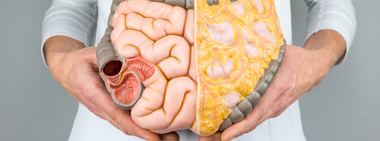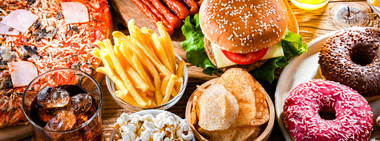How does your job impact your heart health?

You might be surprised to learn that the number one cause of line-of duty deaths in firefighters is heart disease - not physical injury or smoke inhalation. In addition, according to National Fire Protection Association statistics the more fires a firefighter fights, the higher their risk of developing atrial fibrillation. That increases the risk of blood clots, heart failure and stroke.
Police officers face similar heightened risks: One study found they have about 30 to 70 times higher risk of sudden cardiac death during stressful situations, such as physical confrontations and pursuits. Most striking is the fact that, on average, a police officer will experience their first heart attack at the age of 47, about 20 years earlier than the general population.
Perhaps some of this is not surprising. The job description for firefighters and law enforcement officers is a pretty good outline of how NOT to practice good heart health: long hours, stress, irregular sleep habits -- plus physical confrontations and exposure to volatile chemicals.
Indeed, long work hours alone can be a health hazard. The World Health Organization and International Labor Organization estimate that about 398,000 people died from stroke and 346,000 people died from ischemic heart disease in one year as a result of working at least 55 hours per week.
But, for first responders, there is more to this story than stress, long hours, and periods of extreme exertion. I have had the opportunity to participate in first responder cardiovascular health screening programs, and what I can tell you is that from a cardiometabolic perspective, our first responders are suffering. Cholesterol profiles are typically markedly abnormal. Blood sugar control is off. Blood pressures are higher than they should be. Many first responders are overweight or obese.
Turns out, the physicality of their jobs does not make up for almost universal exposure to poor diet quality. Many first responders eat on the run – fast food, quick snacks, sugary beverages. Not only are these items widely available especially at odd hours, but they’re also delicious and made to be addictive. Firefighters and law enforcement officers navigate the same food environment as the rest of us, but with added burdens of erratic mealtimes and high stress, naturally reducing vigilance around healthy nutrition. I suspect that that, unfortunately, for many of us in the workforce and regardless of occupation, much of this sounds familiar.
The good news? These statistics can all be improved, especially with enhanced self-care, even for those of us who aren’t actually fighting fires on a daily basis. That means eating a heart-healthy diet, exercising, getting quality sleep, and maintaining a good relationship with health care providers. All very easy to say, preach even – but very difficult to achieve. Especially within the real-world implementation challenges that exist not just for first responders but for all of us.
Step One Foods was designed to improve health through small, practical, achievable dietary changes. I don’t pretend that Step One solves everything but I also know that consuming two health-building snacks per day – instead of two health-destroying ones - can make a difference. And we’ve already demonstrated that it does in most everyone who tries our program.

Tested & Proven Results.
- Cardiologist formulated
- Supported by over 500 publications
- Clinically-proven, in a double-blind randomized trial with Mayo Clinic and The University of Manitoba
80% of participants lowered their cholesterol in just 30 days. With just two servings per day, Step One Foods offers a proven-effective way to naturally lower LDL (bad) cholesterol.
Get heart health tips and articles like this, delivered right to your email.
New articles every week.
You may also like...

Insulin Resistance, Prediabetes and Type 2 Diabetes. Part 3: Fat in All the Wrong Places

Insulin Resistance, Prediabetes and Type 2 Diabetes. Part 2: Chronic Calorie Excess

You don’t need to avoid foods with cholesterol…except for these


